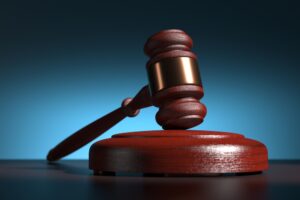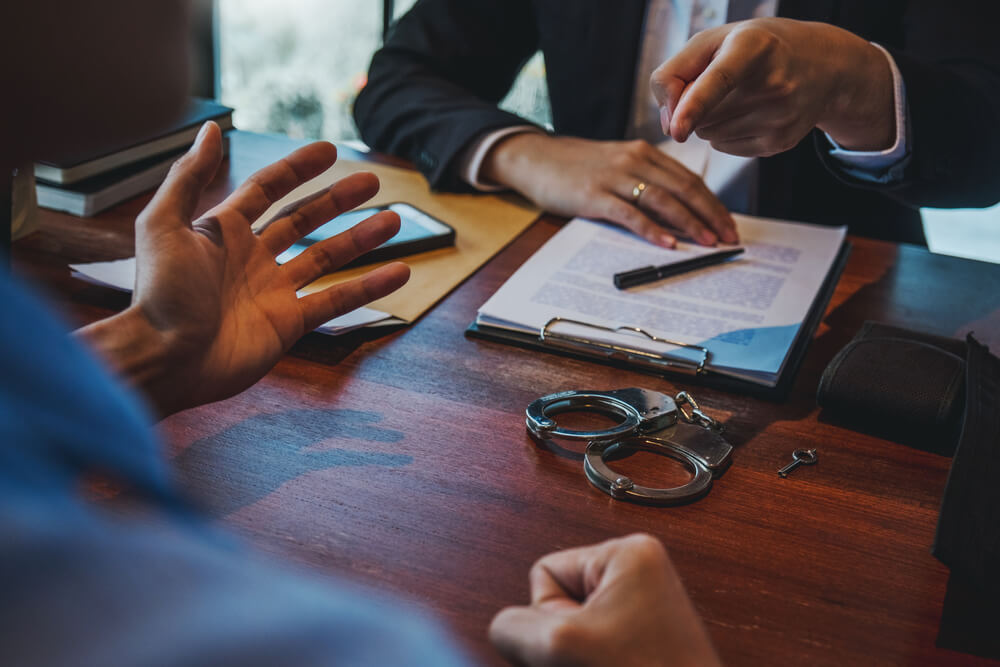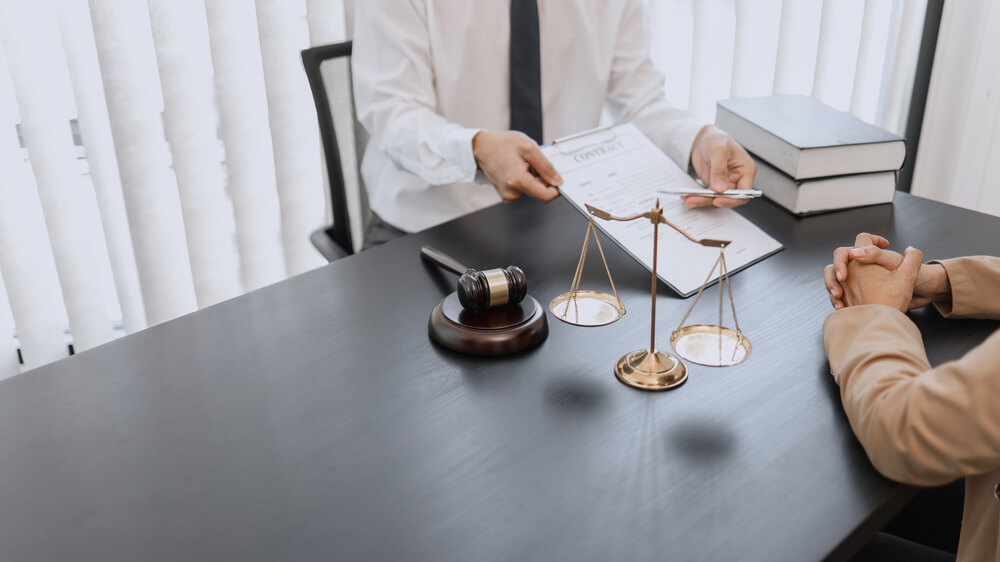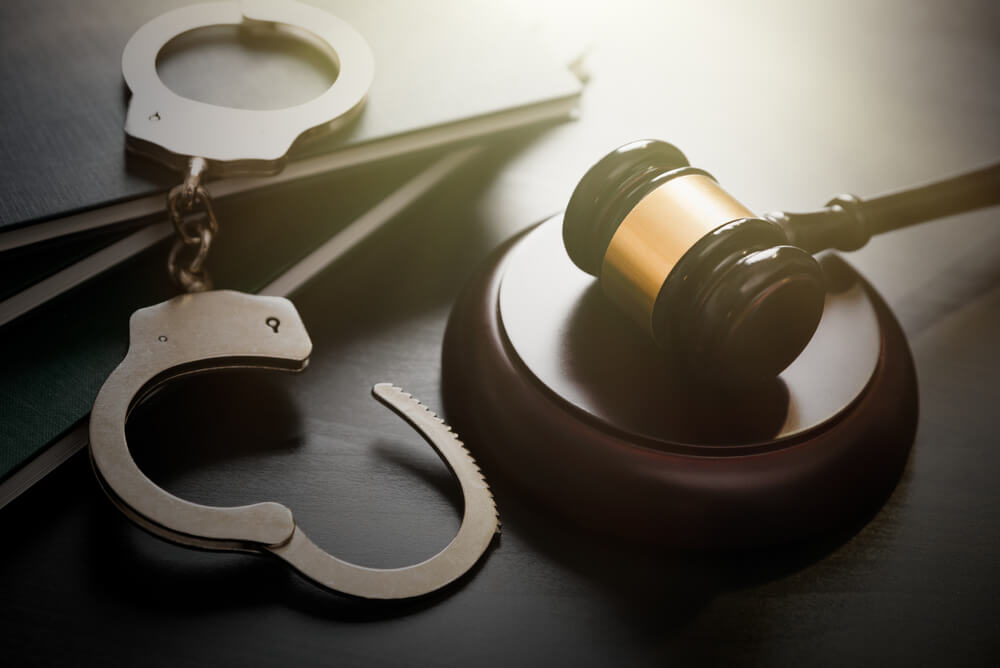In the United States, citizens have the right to representation by an attorney when they face charges of a crime. We believe that the right to a lawyer is so vital that even if a defendant cannot afford to pay for an attorney, the court can appoint a criminal defense attorney to represent them.
Criminal defense lawyers serve an essential role in the criminal justice system. If you have never faced allegations of a crime, you may wonder: what does a criminal defense lawyer do? To learn more about the role of a criminal defense lawyer, continue reading. Contact a defense attorney in your area immediately if you have a case.
Protect Your Rights as a Criminal Defendant

The first job of criminal defense lawyers is to protect their client’s rights. Every citizen has rights under the Constitution of the United States. If someone faces criminal charges, they have specific rights, including:
Remaining Silent
You may know you have the right to remain silent. It often plays a role in movies and TV shows when a suspect gets arrested. That is an example of when the media gets it right.
Every suspect has the right to remain silent after an arrest. The Sixth Amendment guarantees this right. Silence is a fundamental part of the right against self-incrimination. A criminal defense attorney helps guarantee that police do not violate this right.
Speedy Trial
Every criminal defendant across the United States has the right to a speedy and public trial. A speedy trial does not mean that a case goes to trial immediately after a defendant gets arrested or charged with a crime. A speedy trial means a case goes to trial without an unreasonable delay. Criminal defense lawyers help ensure that the prosecution or the court acts properly and does not cause undue delay.
Public trials are an essential right for defendants in criminal cases because the presence of observers inside a courtroom can help ensure the integrity of the entire process.
Confront Witnesses
The Sixth Amendment gives criminal defendants the right to confront their accusers. This right includes cross-examining witnesses who testify against the defendant during a trial. To be in the best position to be successful at trial, a defendant needs an advocate.
Anyone charged with a criminal offense in the United States has the right to represent themselves at trial. Still, this is never a wise decision. The criminal justice system is not defendant-friendly, and there is too much at stake.
Criminal defense attorneys know the law and have experience trying cases, and they can advise you about the next best step to take during your case and how to get the best possible outcome.
Jury Trial
Criminal defendants have the right to a jury trial. The Sixth Amendment guarantees this right. To convict a defendant, the jury must come to a unanimous verdict. The jury should be free from bias or prejudice. The attorneys will participate in jury selection. Jury selection is the process of vetting the jury pool and identifying potential biases that may negatively influence the defendant’s case.
Against Double Jeopardy
The constitution also guarantees that a person cannot be tried for the same offense more than once. Although the constitution is the supreme law of the land, it is not enforceable without people dedicated to protecting the rights it contains. When a person faces criminal charges, criminal defense lawyers are the last line of defense for protecting these important constitutional rights, including the right against double jeopardy.
Representation by an Attorney
Anyone accused of a crime in this country has the right to representation from a criminal defense attorney. The right to an attorney is an essential part of the American criminal justice system. It is so important that defendants who cannot afford an attorney can have one appointed to represent them. Criminal defense lawyers play a crucial role in ensuring that every criminal defendant gets a fair shot at trial.
Effective Assistance from an Attorney
Criminal defendants have the right to effective assistance of counsel. However, effective assistance from counsel does not mean representation without any mistakes. Criminal defense lawyers work to give their clients the best representation possible. Effective assistance from a criminal defense attorney includes protecting your rights and ensuring that you understand the implications of any decisions you make.
Helping to Build Your Defense

When presenting your case to a judge, jury, or prosecutor, a criminal defense attorney strives to present the best case possible.
For a criminal case to succeed, you must build a solid defense:
- Your attorney will carefully review the evidence. A thorough review of all the evidence in a criminal case can mean the difference between an innocent or guilty verdict.
- Your attorney will try to anticipate the prosecutor’s strategy. As your case proceeds to trial, there will be opportunities for you and your attorney to review the evidence that the prosecutor possesses. Your attorney’s office will create a strategy to understand the prosecutor’s plan and how best to respond to their arguments.
- Look for any mitigating factors. Mitigating factors are facts that explain actions and, if they are present, may help reduce a defendant’s sentence after a conviction.
- If convicted, a criminal defense attorney will file various post-trial motions to advocate for their client, including a motion for a new trial, to enter new evidence, or that evidence entered at trial was appropriate.
Represent Your Interests at Each Stage of the Case
If you are charged with a crime, your criminal defense attorney’s goal is to represent you well at each stage of the case. The case begins once the authorities arrest you and issue criminal charges. Your criminal defense lawyer can represent you while you speak to the police during an interrogation.
Your attorney will appear in court at your arraignment. Arraignment is the defendant’s first court appearance. During the arraignment, a judge will formally read the charges against you. At this time, you will enter a plea. It is a part of a criminal defense attorney’s job to ensure that their client understands the implications of entering a plea.
Criminal defense lawyers also advocate for clients regarding bail. Judges typically set bail during the arraignment. If the amount set is greater than you can pay, your attorney will attempt to persuade the court to lower the amount or reduce the amount to zero dollars. A bail hearing is necessary for some circumstances. Your criminal defense attorney may file a motion with the court and present an argument to lower or eliminate the bail requirement.
Your attorney will speak with the prosecutor about your charges and a possible plea settlement as your case continues. Your lawyer must keep you informed about their negotiations with the prosecutor. Criminal defense attorneys try to negotiate a settlement with the prosecutor if they think it is in their client’s best interest.
Your criminal defense attorney will represent you at trial. Criminal trials are overwhelming, and you will benefit from having an experienced and knowledgeable attorney representing you. There are a lot of moving parts in a criminal trial. Not only does a defendant need a command of the facts of the case, but they also need legal know-how to put themselves in the best position for a successful outcome. You should always have a criminal defense attorney with the skills required to win a case on your side at trial.
If convicted, your criminal defense attorney will appear at the sentencing hearing to fight for the most lenient sentence possible. Even if you have a conviction, your attorney can continue to work for the best possible outcome, including presenting mitigating factors or appealing the conviction.
Help Prevent Wrongful Convictions
Wrongful convictions, or people serving time in jail or prison who are innocent of a crime, are a much too common issue in the criminal justice system. The wrongful conviction problem is prevalent across the country. According to the National Registry of Exonerations (NRE), the number of freed prisoners due to wrongful convictions has increased in recent years.
When wrongfully convicted people get released from custody, justice is theoretically served, but why do innocent people go to prison in the first place?
The NRE published the following common reasons that people experience wrongful convictions:
- False accusations – Hundreds, if not more, of people across the country, serve prison sentences that they do not deserve because of a false accusation. The number one cause of wrongful convictions across the United States in 2021 was false accusations. The NRE reported that 107 people were exonerated after serving prison time for committing a crime of which they were falsely accused.
- False confessions – Unfortunately, some people confess to crimes they did not commit. False confessions might happen for various reasons, such as trying to get a reduced sentence after the police tell a defendant they will go to jail for decades if they try to fight their accusations. The NRE reported that 19 exonerees were in prison because of a false confession.
- False or misleading forensic evidence – Forensic evidence is always advancing, but it is far from perfect. Last year, courts overturned 33 cases because of wrong or misleading forensic evidence.
- Mistaken witness identification – Eyewitness accounts of criminal activity are usually unreliable. However, despite the faulty nature of this evidence, many criminal convictions are based on eyewitness accounts. Last year, courts overturned 47 convictions that involved mistaken eyewitness testimony.
- Official misconduct – Official misconduct refers to improper actions by a public servant. For example, a police officer may prejudice an investigation with misconduct if they do not label or store evidence properly or fail to read a suspect their Miranda rights. The NRE reported that of all exonerations last year, 70 percent involved official misconduct.
Criminal defense attorneys work to prevent wrongful convictions from happening. Criminal defense lawyer occupies a unique position in the criminal justice system because their role is to protect their client’s rights, and by doing so, they also safeguard the rights of society at large. The justice system should protect the public from criminal activity, but there must be checks on the power that the system wields.
A criminal defense attorney works to ensure that their client gets treated fairly after facing accusations of a crime by holding forensic experts, police, and prosecutors accountable.
What Should I Look for in a Criminal Defense Lawyer?
If you choose to hire private defense counsel, you should take the time to research so you can find the best fit for you and your situation. As you start looking for a criminal defense lawyer, consider the following:
What Kinds of Cases Does the Attorney Handle?
Criminal defense is a vast field. Your charges may be unfamiliar to some attorneys who practice criminal defense. Some attorneys typically handle misdemeanor offenses, and others handle felonies. You need an attorney that understands the law surrounding your charges.
Check Out The Attorney’s Success Record
The attorney’s success record is important. If you have acquaintances who have used the attorney you are considering in the past, and they had good results, the attorney may be a good choice. You can also read the attorney’s Google reviews to see if their past clients are satisfied with the attorney’s representation.
Ask About Their Familiarity with the Local Court
If you schedule an appointment with an attorney, you can ask about how familiar the attorney is with the court system. Knowing the judges and how they typically rule on legal issues is as important as knowing the law well in many areas. It is usually beneficial to have a criminal defense lawyer who works with the prosecutors and judges you will face after a criminal charge. A criminal defense attorney with this knowledge may help you get better results than a lawyer without this knowledge.
Are You Comfortable with the Attorney?
Ultimately, you should ensure you are comfortable with the attorney you hire. You should be able to communicate your goals clearly and trust that your criminal defense lawyer will work for you.



